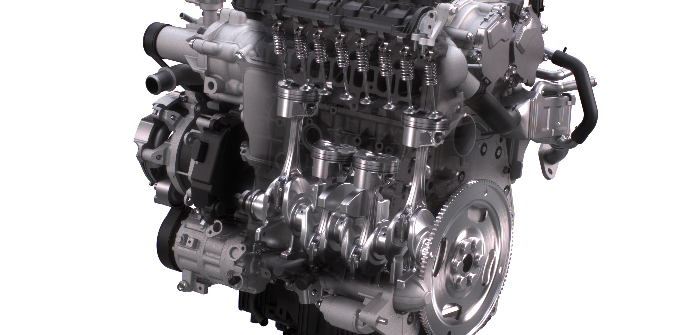The new Skyactiv-X engine from Mazda, which combusts through compression ignition, shows the potential to reduce emissions from an internal combustion engine to below that of an electric vehicle (EV) when measured ‘well-to-wheel’.
The Japanese auto maker has said that electric powertrains will not satisfy society’s demand for a reduction in greenhouse gas emissions until the majority of power is derived from renewable rather than non-renewable energy sources.
Accordingly, it has moved from ‘tank-to-wheel’ emissions evaluations (which consider only emissions while driving) to a ‘well-to-wheel’ method that also considers fuel extraction, manufacturing and shipping, and is focusing on bettering EVs’ real-world emissions by maximizing the efficiency of the internal combustion engine (ICE). This is exemplified by the next-generation Skyactiv-X petrol engine – the world’s first commercial petrol engine to use compression ignition, in which the fuel-air mixture ignites spontaneously when compressed by the piston.
The company is continuing its commitment to reducing its corporate average ‘well-to-wheel’ CO₂ emissions to 50% of 2010 levels by 2030 and 10% by 2050. It will also introduce an EV and mild hybrid technology (or microhybridization) in 2019, models with built-in batteries in 2020, and the brand’s first plug-in hybrid in 2025.
Mazda believes regulations that place the absolute emissions of an EV at zero to be disingenuous as two thirds of global electricity production comes from non-renewable fossil fuel sources.
The use of ‘well-to-wheel’ emissions evaluations will allow Mazda to make a more accurate assessment of the appropriate powertrain development paths to pursue in the immediate future.


